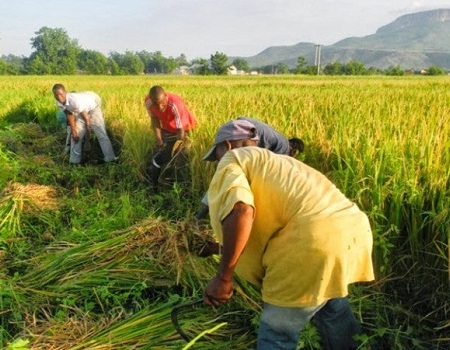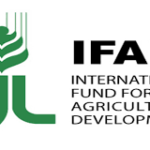According to report from Cadre Harmonise (CH), about 23.7 million people in 26 states and Federal Capital Territory (FCT) are expected to be in Crisis or worse between June and August 2023.
The report also said that about 24.3 million people in 26 states and FCT are expected to be in Crisis or worse between June and August 2023.
The CH process is led by the Federal Government of Nigeria through the Ministry of Agriculture and Rural Development and is facilitated through the National Programme for Food Security (NPFS).
Its financial and technical support comes from United Nations Food and Agriculture Organisation (FAO), the Permanent Interstate Committee for Drought Control in the Sahel (CILSS), the World Food Programme (WFP), the United Nations Children’s Fund (UNICEF), International Organization for Migration (IOM) and the United Nations High Commission for Refugees (UNHCR).
Others include the Famine Early Warning Systems Network (FEWSNET), Integrated Food Security Phase Classification Global Support Unit (IPC-GSU), among others
The report which was presented in Abuja further stated that about 1 million people in Adamawa are expected to be in Crisis or worse between June and August 2023.
“About 1.4 million people in Borno are expected to be in Crisis (CH Phase 3) or worse between June and August 2023.
“About 1.3 million people in Yobe are expected to be in Crisis (CH Phase 3) or worse between June and August 2023”, the report stated.
Furthermore, CH reported that there is improvement in food consumption across most of the States. However, some LGAs in Adamawa, Borno and Yobe which experience crisis food consumption status in the current period (October to December, 2022).
“In the projected period (June to August 2023) food consumption is expected to slightly worsen due to possible reduction in household and market stocks and its attendant rise in food prices.
It also said that during the current analysis period, most of the households in the analyzed areas adopted crisis-level livelihood coping strategies.
This according to the report is most common in the insurgency affected states of Adamawa, Borno and Yobe: states experiencing the banditry activities (Katsina, Sokoto, Kaduna and Zamfara).
“In the projected period, these areas would most likely resort to more severe livelihood coping strategies which might lead to a severe depletion of livelihood assets, unless on-going humanitarian action is sustained (in the areas where they are already in operation) and sustainable intervention explored in the states (where no humanitarian operation exits).
“The nutrition situation shows that the prevalence of global acute malnutrition for children under ive years for the most of the accessible areas of, Borno and Yobe States is in the crisis phase, while those of Adamawa are in stress.
“In some inaccessible areas of Borno State, the prevalence of global acute malnutrition has reached very critical levels (Phase 4 and Phase 5).
“The concerning status of nutrition in the Borno Adamawa and Yobe States, and most critically in the inaccessible areas, calls for urgent attention to knowledge-base of care-givers in the areas of dietetics and hygiene practices. Similarly, the drastic drop in household income due to the long-run impact of covid-19 and insecurity.
“Results from the CH analysis shows that current mortality rate is in general in minimal phase across the accessible areas of North East as well as in the North West States”, the report added.
The Country Representative of the FAO, Fred Kafeero said the CH analysis produces the most preferred and widely acceptable data/information based on the consensus-based approaches through which it is generated.
“Currently, its results are widely used for formulating humanitarian responses; and I would once again like to urge the Government to consider factoring in the CH results in all development plans alongside their respective budgets;
ALSO READ FROM NIGERIAN TRIBUNE
“We highly value the CH process and the partnerships in the process; that is why FAO continues to support the Government in leading the CH processes nationally, both in terms of funding as well as provision of technical support and capacity building, amidst the prevailing budgetary constraints”, he stated.
On his part, the Permanent Secretary Ministry of Agriculture and Rural Development, Dr Ernest Umakhihe said the October, 2022 CH results is apt and comes at the pages of economic stress when Nigeria is still faced with post Covid-19 pandemic and negative impact of Russia-Ukraine war.
He assured all partners of government’s commitment towards upholding the outcome and recommendations arising from the report in view of enhancing the food and nutrition security situation of concerned states.
WATCH TOP VIDEOS FROM NIGERIAN TRIBUNE TV
- Let’s Talk About SELF-AWARENESS
- Is Your Confidence Mistaken for Pride? Let’s talk about it
- Is Etiquette About Perfection…Or Just Not Being Rude?
- Top Psychologist Reveal 3 Signs You’re Struggling With Imposter Syndrome
- Do You Pick Up Work-Related Calls at Midnight or Never? Let’s Talk About Boundaries







